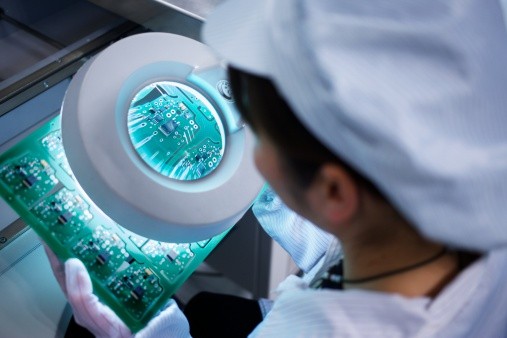For all the threats that U.S. President Donald Trump has thrown on China, such as imposing a high tariff on U.S. imports and labeling China as a currency manipulator, it could be picking up the wrong fight.
According to an article in the Entrepreneur, China is aiming for a higher goal to become the world's technology innovator, not its technology manufacturer.
While the U.S. is making an effort to bring back manufacturing jobs to the country, China is working on ways to create high-tech products and not simply assemble them.
And granting that the U.S. wins the trade war, it will lose something more substantial, which is entrepreneurial leadership in technology, the report said.
All high-tech products undergo four steps. First is the development of a prototype, then the writing of the software code, the design of production units, components and subsystems and finally, the product assembly and testing.
Most tech companies own the first three steps, which are the most valuable. Although American companies outsource some designs, they retain the intellectual property rights and own the brand of the finished product.
Previously, Chinese companies were only limited to assembly and testing, but now, it has changed abruptly. In the past decades, the country incubated thousands of startups and launched several venture capital firms. Now, these firms are making innovations in drones, electric vehicles, smart devices, fintech and commerce.
According to research firm CB Insights, about a quarter of the world's unicorns is now in China, which includes four of the top seven companies, by valuation.
Local companies in China also make and sell more electric cars than the rest of the world combined, the report said.
Last year, Uber gave up and sold its local unit to rival Didi Chuxing, a company backed by Alibaba, Tencent and Baidu.
Among the global smartphone makers, Samsung and Apple may be the leaders but the top five from China, which includes Huawei, Oppo and Xiaomi, take almost 20 percent of the global market.
China also on its way to becoming a global leader in semiconductor manufacturing by 2030 as a January report by the Obama administration showed that China has funded a $160 billion program to acquire advanced chip technology and support chip production in China.
In addition, the Chinese entrepreneurial culture is more aggressive and competitive as shown in the technology hubs in Beijing and Shenzhen. Its middle class is also an expanding group of consumers that are ready to use new products designed and made by Chinese companies.
China is aiming to own the core technology, the chips, the design, the hardware and software and the brands of the final products. In time, it may replace Silicon Valley as the world's entrepreneurial capital.
While Trump may succeed with its trade war, the U.S. may eventually lose its dominance in technology to China.



























